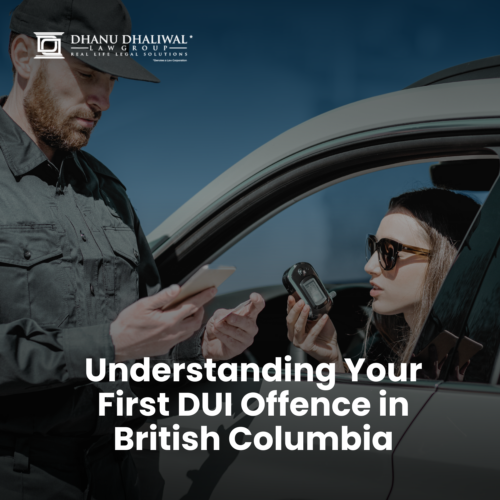Immediate Roadside Prohibition (IRP) is a legal mechanism used in British Columbia to address impaired driving swiftly and effectively. Introduced to combat the high rates of drunk driving, IRP offers a streamlined process for dealing with drivers suspected of being impaired. Here, we will explore what IRP entails, its implications, and how to handle such situations if you find yourself facing an IRP.
What is IRP in British Columbia
An Immediate Roadside Prohibition (IRP) can be issued to drivers who fail or refuse to comply with a roadside breath test. The penalties for an IRP can range from a 3-day driving prohibition for a first offense to a 90-day prohibition for repeat offenders. In addition to the driving ban, individuals may face fines, vehicle impoundment, and mandatory participation in remedial programs.
What to Do if You Receive an IRP
If you are handed an IRP, it’s crucial to act quickly. One of the first steps is to request a review of the prohibition. This must be done within seven days, and the review process can be complex. It is advisable to seek legal assistance immediately. Dhanu Dhaliwal Law Group can guide you through the steps to challenge an IRP effectively.
Challenging an IRP
Challenging an IRP involves presenting a defense that can question the accuracy of the breathalyzer test or the circumstances under which the test was conducted. A common strategy includes disputing the reliability of the roadside screening device or arguing procedural errors made by the police. Learn more about effective defense strategies on our page about beating a DUI charge in British Columbia.
Long-Term Implications of an IRP
An IRP can have lasting effects on your driving record and personal life. It can increase insurance premiums and even affect employment opportunities. Additionally, a history of IRP can complicate future interactions with law enforcement. For those looking to clear their record, understanding the process of removing a DUI from your criminal record is essential.
Carter Defence Strategy and IRP
While the Carter Defence primarily applies to court proceedings for DUI charges, understanding its principles can be beneficial in preparing for an IRP review. This defense highlights the importance of scrutinizing the evidence and circumstances surrounding the alleged impairment.
Special Considerations: Sleeping in Your Car
Interestingly, you can also receive an IRP even if you are not actively driving. For instance, being found sleeping in your car while intoxicated can still result in an IRP if it is determined that you were in care and control of the vehicle.
Conclusion
Navigating an IRP in British Columbia requires prompt action and a clear understanding of your legal options. With the right legal support from experienced professionals like those at the Dhanu Dhaliwal Law Group, you can challenge the prohibition and work towards minimizing its impact on your life. For more detailed guidance and support, contact us today.





